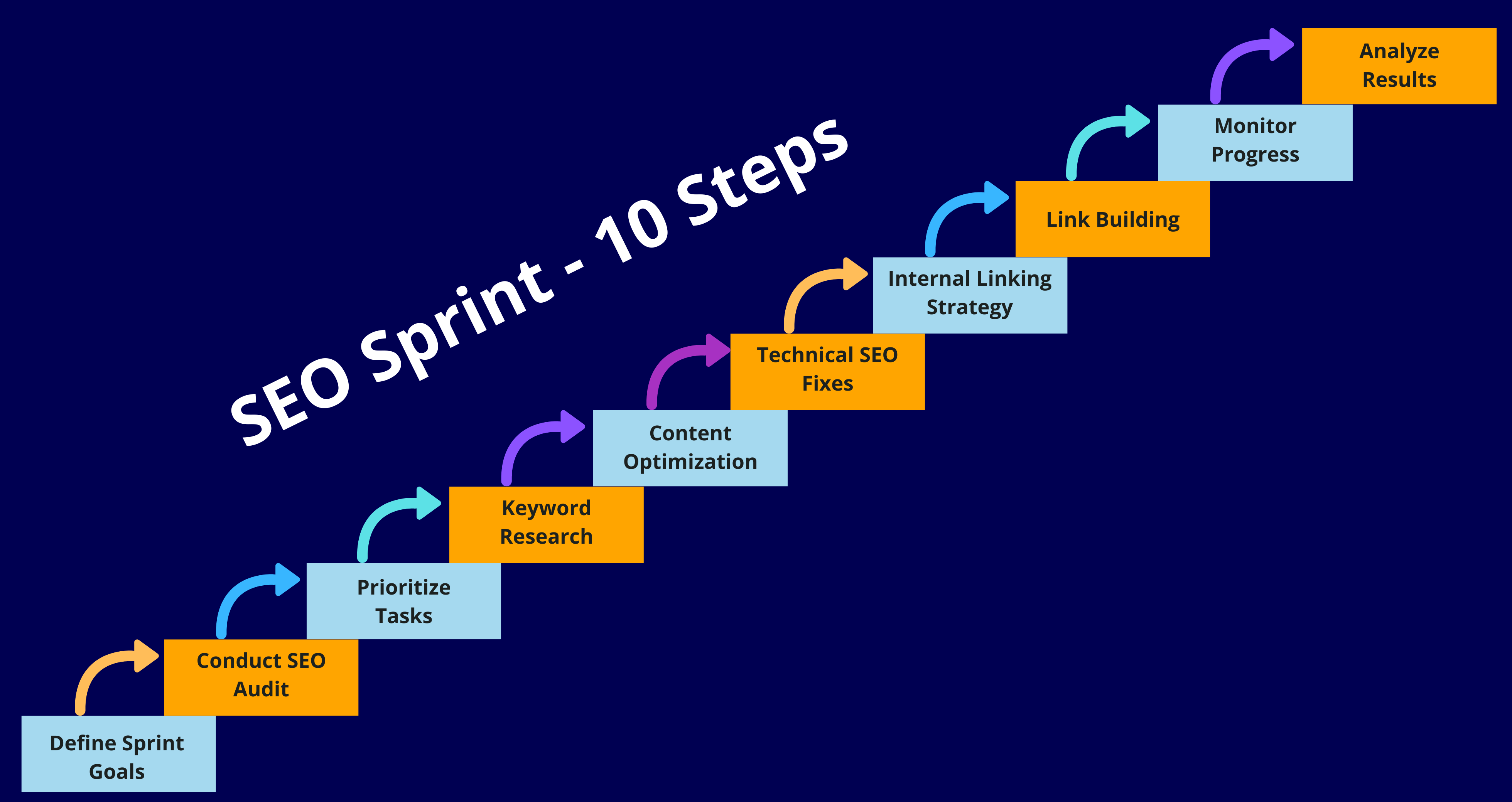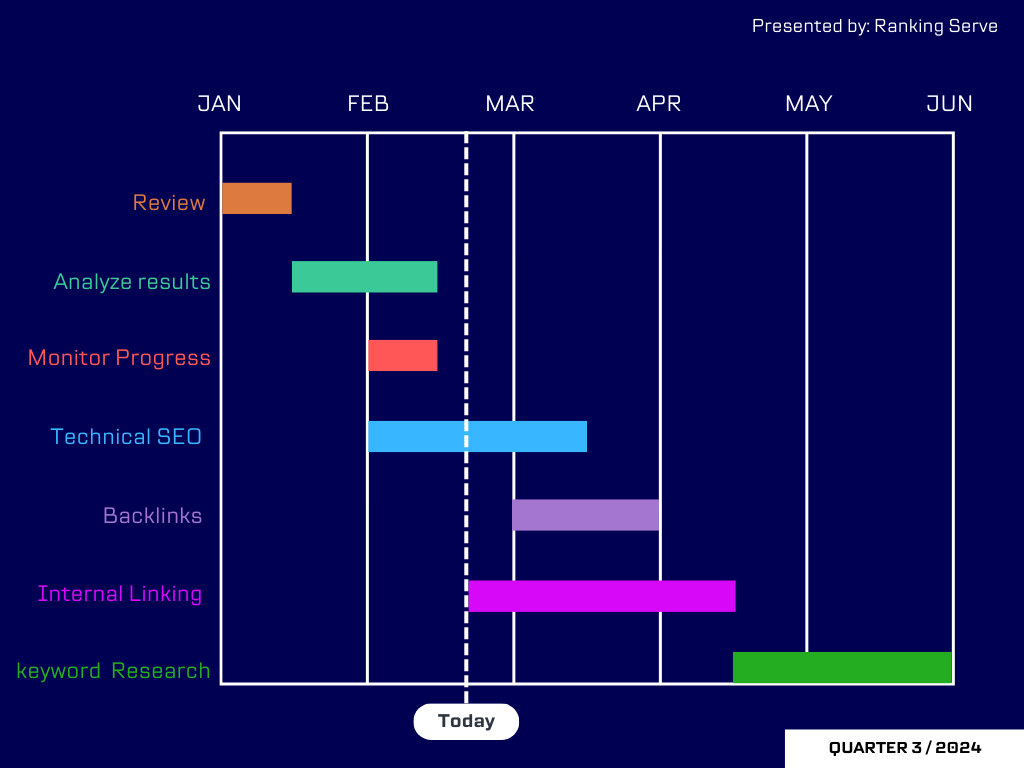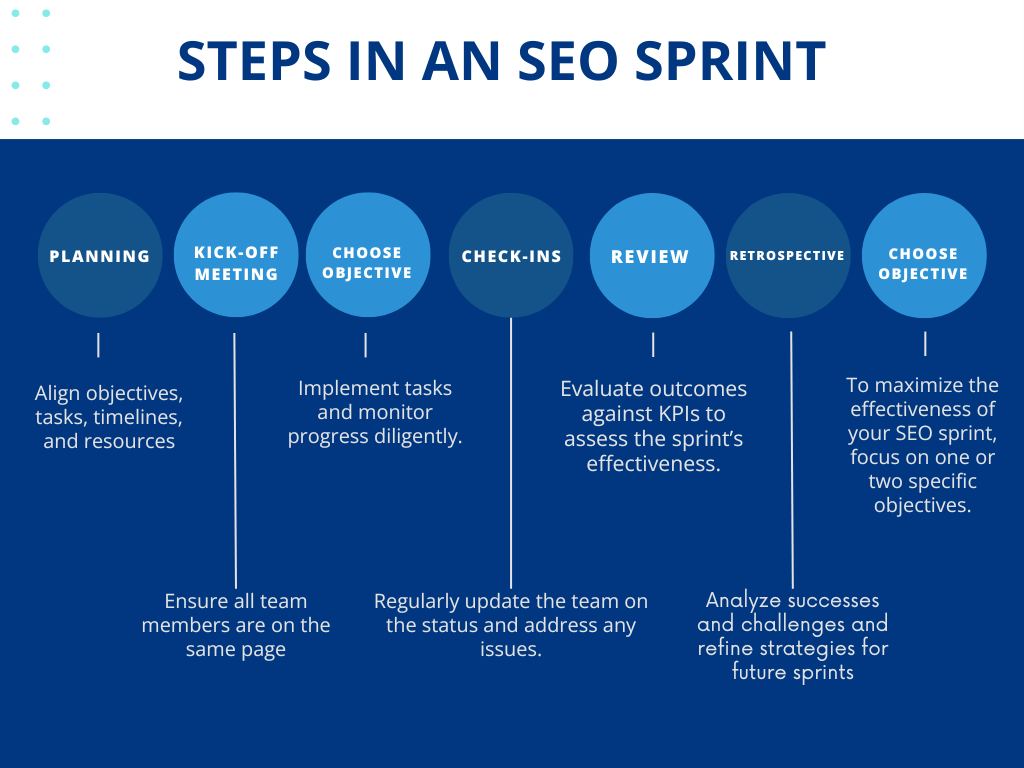Quick Wins with Sprints
SEO Sprints: Rapid Results with Targeted Strategies
Unleashing the Power of SEO Sprints
In the fast-paced digital landscape, staying ahead in SEO can often feel like a never-ending race. Traditional SEO strategies can be methodical and drawn out, sometimes leaving businesses feeling stagnant. Enter SEO sprints—an agile, focused approach designed to deliver rapid, measurable results.
What is an SEO Sprint?
An SEO sprint is a concentrated, time-bound strategy aimed at achieving specific SEO goals in a short period. Unlike ongoing SEO practices, which often involve long-term, continuous efforts, an SEO sprint is designed to produce quick, impactful outcomes. Typically lasting between 1 to 3 months, these sprints are structured to tackle key SEO objectives swiftly and efficiently.

Why opt for SEO Sprint?
If you’ve ever been frustrated by the repetitive nature of traditional SEO routines, SEO sprints might be just what you need. SEO Sprint offers:
Focused execution: Solve pressing SEO issues, capitalize on emerging opportunities, or launch new projects with a clear, targeted approach.
Get results fast: Achieve dramatic improvements in a short time, allowing your business to adapt and thrive.
Enhanced agility: Quickly adjust strategies based on real-time data and results to ensure your SEO efforts are always aligned with your business goals.
Is an SEO Sprint Right for Your Business?
SEO sprints are ideal for businesses looking for a quick win or to tackle a specific project. They’re especially effective when you need to solve an urgent SEO problem or capitalize on new opportunity.

Key Components of an SEO Sprint
A successful SEO sprint requires several critical elements:
Clear Objectives: Define specific, measurable goals such as increasing organic traffic, improving keyword rankings, or resolving technical SEO issues.
Well-Defined Task List: Outline all necessary tasks, from on-page optimizations to backlink-building activities.
Timeline and Milestones: Set a start and end date with interim milestones to track progress and ensure timely execution.
Resources: Identify the team members, tools, and budget required to execute the sprint effectively.
KPIs: Select Key Performance Indicators (KPIs) to measure success, such as changes in organic traffic, click-through rates (CTR), or keyword rankings.
Typical Steps in an SEO Sprint

Planning: Align objectives, tasks, timelines, and resources.
Kick-Off Meeting: Ensure all team members are on the same page.
Execution: Implement tasks and monitor progress diligently.
Check-Ins: Regularly update the team on the status and address any issues.
Review: Evaluate outcomes against KPIs to assess the sprint’s effectiveness.
Retrospective: Analyze successes and challenges and refine strategies for future sprints.
Choose Right Objective: To maximize the effectiveness of your SEO sprint, focus on one or two specific objectives.
SEO Sprints vs. Traditional SEO Retainers
While traditional SEO retainers offer a broad, ongoing approach, SEO sprints are more targeted and time-bound. Here’s how they compare:
- Duration: SEO sprints are short-term (60-90 days) versus the long-term nature of retainers.
- Focus: Sprints target specific objectives, while retainers offer comprehensive, ongoing management.
- Flexibility: Sprints are highly flexible with defined goals, whereas retainers may have more moderate flexibility.
- Payment Structure: Sprints are project-based, while retainers are typically monthly.
Ready to Accelerate Your SEO Strategy?
At RankingServe, we excel in executing effective SEO sprints tailored to your business needs. Our expert team is here to help you achieve rapid, measurable improvements in your digital presence.